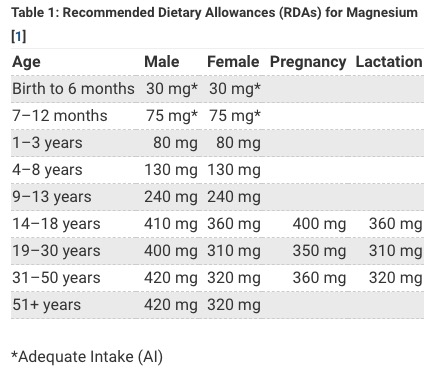Feeling tired all the time? Struggling with muscle cramps, sleep problems, or constant sugar cravings? Your body might be trying to tell you something—you could be low on magnesium!
Why Are So Many People Magnesium Deficient?
Getting enough magnesium used to be easy. Our ancestors naturally consumed it through nutrient-rich foods, but modern diets and farming practices have led to a significant drop in magnesium levels.
- Industrial farming has depleted magnesium from the soil, making produce less nutrient-dense than it was decades ago.
- Processed foods dominate many diets, pushing out magnesium-rich whole foods like leafy greens, nuts, and seeds.
- Stress, medications, and certain health conditions can deplete magnesium levels even further.
According to the USDA, about 57% of Americans don’t meet their daily magnesium needs—and the effects can be serious.
Warning Signs of Magnesium Deficiency
1. Muscle Cramps & Spasms
Frequent cramps, especially in the calves, may be a sign that your muscles aren’t getting enough magnesium to relax properly. Magnesium helps regulate nerve signals and muscle contractions, making it essential for preventing cramps.
2. Constant Fatigue & Weakness
If you’re always exhausted, even after a full night’s sleep, low magnesium could be to blame. Magnesium plays a key role in energy production, and without enough, you may feel sluggish or weak.
3. Trouble Sleeping
Struggling to fall asleep or waking up multiple times during the night? Magnesium helps regulate melatonin and neurotransmitters that promote restful sleep. Adding more magnesium to your diet might help you sleep better.
4. High Stress & Anxiety
Magnesium has a calming effect on the nervous system. Low levels are linked to increased stress, anxiety, and even depression. Studies show that increasing magnesium intake may help reduce anxiety symptoms.
5. Frequent Headaches or Migraines
Many migraine sufferers have low magnesium levels. Studies suggest that supplementing with magnesium may reduce both the frequency and intensity of migraines.
6. High Blood Pressure
Magnesium helps relax blood vessels, acting as a natural blood pressure regulator. A lack of magnesium can contribute to hypertension, increasing the risk of heart disease.
7. Irregular Heartbeat (Arrhythmia)
A fluttering or irregular heartbeat can sometimes be caused by a magnesium deficiency, affecting the balance of potassium and calcium needed for heart function.
8. Digestive Issues & Constipation
Magnesium keeps the digestive system moving by drawing water into the intestines. Low levels can lead to slow digestion and constipation.
9. Numbness & Tingling in Limbs
Magnesium is crucial for nerve function, and a deficiency may cause tingling, numbness, or even shaky hands.
10. Sugar & Chocolate Cravings
If you’re constantly craving sweets, it could be a sign that your body needs more magnesium. Instead of reaching for processed sugar, try eating magnesium-rich foods like nuts, seeds, and dark chocolate!
How to Increase Your Magnesium Levels Naturally
Eating a magnesium-rich diet is the best way to maintain healthy levels. Here are some of the best food sources:
- Dark Chocolate (Pure, 70%+ cocoa – 500mg per 100g)
- Pumpkin Seeds (156mg per serving)
- Chia Seeds (111mg per ounce)
- Dark Leafy Greens (Spinach, kale, chard, lettuce)
- Bananas, Avocados, Peaches, Plums
- Nuts & Grains (Almonds, Cashews, Walnuts)
- Beans & Lentils
- Brown Rice, Oats, & Whole Grains
- Potatoes
If food sources aren’t enough, magnesium supplements can help. Options include:
✔ Magnesium Citrate – Best for digestion and absorption.
✔ Magnesium Chloride – Highly recommended, but bitter in taste.
✔ Magnesium Sulfate (Epsom Salt) – Ideal for relaxing baths.
The recommended daily intake is 300mg for women and 400mg for men, but always consult a doctor before taking supplements.
Final Thoughts
Magnesium is essential for energy, sleep, mood, heart health, and muscle function—yet most people don’t get enough. Recognizing the signs of a deficiency and adjusting your diet could dramatically boost your overall well-being.
If you found this helpful, share it with your friends and family—let’s help more people recognize the importance of magnesium! 💚






